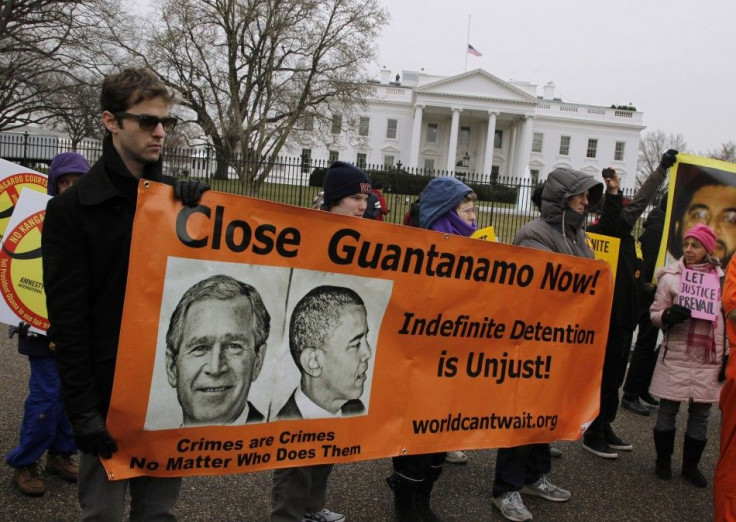Congress Passes Pentagon Bill with Military Detention Provisions

(Reuters) Congress Thursday approved a defense bill requiring the military to handle suspected foreign militants allied with al-Qaida, sending it to President Barack Obama for his expected signature into law.
Final action came when the Senate approved the bill in an 86-13 vote, a day after Obama retreated from a veto threat on the legislation. The administration was unhappy with the intrusion into its authority over counterterrorism matters but relented when some of its flexibility was restored.
Other critics complained the measure allowed the indefinite military detention of terrorism suspects, including Americans.
Sen. Dianne Feinstein, D-Calif., introduced legislation Thursday that she said would seek to clarify that indefinite detention could not be imposed on American citizens or anyone apprehended inside the United States.
I strongly believe U.S. citizens apprehended in the U.S. should never be held in indefinite detention, Feinstein told the Senate just before the vote.
The House of Representatives agreed to the defense bill on Wednesday. The measure also imposes sanctions against Iran's central bank and pre-emptively freezes some aid to Pakistan.
The legislation was the latest battle in a long struggle between Obama, a Democrat, and some lawmakers over whether terror suspects should be prosecuted as enemy combatants before military commissions and held at Guantanamo Bay, Cuba, or treated as criminal suspects in the U.S. court and prison system.
Republicans and some Democrats have urged that military custody and military courts should be used as a rule. The administration has sought to keep its flexibility in interrogating and detaining terrorism suspects, arguing that many had been successfully prosecuted in federal courts.
Senior members of Obama's national security team had expressed deep reservations about the section that broadens the armed forces' powers by requiring that foreigners allied with al-Qaida be held in military custody even if they are captured in the United States.
Sen. John McCain, R-Ariz., said Thursday that the Obama administration had fought these provisions every step of the way, repeatedly trying to have them stripped out.
But the White House said the revisions of recent days gave it more discretion over implementation of the law.
Lawmakers gave the president authority to waive some provisions and took out a ban on using civilian courts to prosecute al-Qaida suspects.
The Obama administration also had misgivings about the bill's requirement for sanctions on foreign financial institutions that deal with Iran's central bank, the main conduit for Tehran's oil revenues.
But the White House never issued a veto threat on that part of the bill.
The measure also would place a pre-emptive freeze on hundreds of millions of dollars in aid to Pakistan until Congress gets assurances from the U.S. secretary of defense that Islamabad is helping fight the spread of homemade bombs in the region.
The defense legislation authorizes U.S. defense programs from war fighting to weapons building.
It authorizes $662 billion for defense in fiscal 2012, including the Pentagon's base budget and the war in Afghanistan, although appropriators must still approve the numbers before money is spent.
(Reporting By Susan Cornwell; Editing by Sandra Maler)
© Copyright Thomson Reuters 2024. All rights reserved.





















